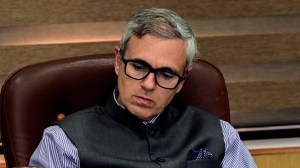The world thinks well of Bush, Vajpayee, Putin
PRIME Minister Atal Behari Vajpayee, US President George W. Bush and Russian leader Vladimir Putin stand head and shoulders above many of th...

PRIME Minister Atal Behari Vajpayee, US President George W. Bush and Russian leader Vladimir Putin stand head and shoulders above many of their international counterparts in personal popularity, according to a major study of public opinion in 44 nations.
Three-quarters of Indians gave PM Vajpayee good marks, according to the study released this week by the Washington-based Pew Research Center for the People and Press.
The Pew Global Attitudes Survey, which interviewed more than 38,000 people, showed that 71 per cent Americans believed Bush was having a good influence on how things were going in the country and 85 per cent of Russians felt the same way about President Putin.
By comparison 62 per cent of the French held a positive view of their President Jacques Chirac, while 54 per cent of the British believed Prime Minister Tony Blair was a positive influence on the country. With just 38 per cent, Japanese Prime Minister Junichiro Koizumi had the least support among the G-8 leaders.
The report, titled ‘What the World Thinks in 2002’, said that people in countries with authoritarian regimes gave their leaders, such as Pervez Musharraf of Pakistan (76 per cent approval), the high marks that might be expected for heads of governments that brook little Opposition. The dubious prize for the least respected by his citizens went to former Turkish Prime Minister Bulent Ecevit, with 91 per cent of Turkish respondents disapproving of his job at the time of the survey.
Among those heads of state still in power, poor grades were given to Alfonso Portillo of Guatamala (75 per cent negative), Alejandro Toledo in Peru (76 per cent) and Eduardo Duhalde (84 per cent) of Argentina. Bangladeshis expressed satisfaction with their leader, with 77 per cent of the respondents approving the job Prime Minister Begum Khaleda Zia was doing.
Perhaps reflecting international worries, the military emerged as a highly rated institution in most countries of the world. The notable exceptions were Latin American countries, notably Guatemala, Argentina and Peru. Overwhelming majority of 85 per cent gave the military high marks. Military also found very strong support in the United States with 87 per cent approval, Pakistan with 84 per cent, France with 80 per cent and Britain with 74 per cent.
In fact, the military received a better rating than the national governments in most countries. Only 64 per cent of respondents in India and the United States believed the government was a ‘‘good influence’’ in their country. Military was also more highly regarded than religious leaders in most of Europe, Asia and many countries in West Asia/conflict area.







- 01
- 02
- 03
- 04
- 05
























